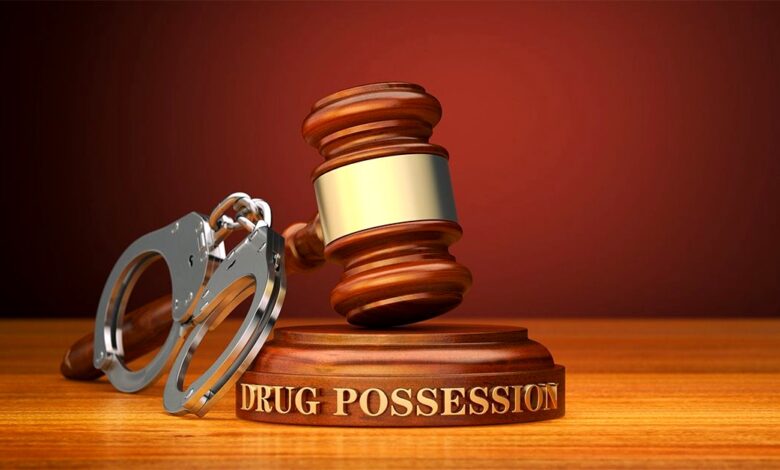Common Defenses in Drug Possession Cases

In legal battles involving drug possession charges, understanding the common defenses is pivotal for building a strong case. Defendants facing these charges in Columbus often have various legal options to challenge the prosecution’s case, ensuring a fair and just trial.
This article delves into the typical defenses employed in drug possession cases, shedding light on the strategies employed by defense attorneys to protect their client’s rights and freedoms.
Read More: State & Federal Drug Crime Charges You Should Know
1. Unlawful Search and Seizure: This defense tactic critically examines the circumstances under which law enforcement acquired the drugs. Defense attorneys meticulously scrutinize the search, questioning whether the authorities followed proper legal protocols. If the search and seizure violated the Fourth Amendment rights, safeguarding individuals against unreasonable searches and seizures, the evidence may be suppressed. Common arguments include the absence of a valid search warrant, lack of valid consent, or insufficient probable cause. By challenging these aspects, defense lawyers aim to identify any constitutional violations, ultimately advocating for the exclusion of the evidence, which could lead to a case dismissal.
2. Lack of Knowledge or Control: This defense strategy asserts that the accused had no awareness of the drugs’ presence or lacked control over them. The burden of proof falls on the prosecution, requiring them to demonstrate that the defendant knowingly and intentionally possessed the illegal substance. Defense attorneys may present arguments suggesting that the drugs belonged to someone else or that the accused was entirely unaware of their existence. By casting doubt on the intent element essential for a conviction, this defense challenges the prosecution’s case, raising reasonable doubt in the minds of the jury.
3. Chain of Custody Issues: The integrity of evidence lies in a secure and unbroken chain of custody, from the moment of seizure to its presentation in the courtroom. Defense attorneys meticulously investigate the handling of the evidence, analyzing every step from seizure to court presentation. Any gaps, inconsistencies, or breaches in the chain of custody could render the evidence unreliable. Defense lawyers emphasize these discrepancies, arguing for the exclusion of the evidence, which can significantly weaken the prosecution’s case or even lead to its dismissal.
4. Entrapment: Entrapment comes into play when law enforcement induces an individual to commit a crime they wouldn’t have otherwise committed. For this defense to be valid, the accused must demonstrate that they were coerced or manipulated by law enforcement into engaging in the illegal activity. Evidence of entrapment can lead to the dismissal of charges, shedding light on the unethical methods employed by authorities. Defense attorneys meticulously gather evidence and testimonies to establish that the accused was a victim of entrapment, thus challenging the credibility of the case against their client.
5. Medical Necessity: In situations involving prescription medications or medical marijuana, the defense may establish that the drug possession was for legitimate medical purposes. This defense relies on presenting valid prescriptions or medical documentation, clearly demonstrating the necessity of the drugs for the accused. By proving that the possession was lawful and adhered to medical guidelines, this defense counters allegations of illegal drug possession, providing a valid reason for the accused’s actions.
Seeking Help from a Drug Possession Lawyer
In any drug possession case, it is essential to seek the services of a professional drug possession Lawyer in Columbus, OH. A skilled drug possession lawyer possesses in-depth knowledge of the complexities surrounding drug laws and defenses. They understand how to effectively utilize these defense strategies, such as challenging search and seizure procedures, establishing a lack of knowledge or control, addressing chain of custody issues, proving entrapment, presenting medical necessity, and identifying violations of Miranda rights.
How can a Drug Possession Lawyer Help?
Expert Legal Advice: A drug possession lawyer can assess the specifics of your case, helping you understand the charges, potential penalties, and available legal options. They can provide expert legal advice tailored to your situation, empowering you to make informed decisions.
Crafting a Strategic Defense: Drug possession lawyers have a deep understanding of the defenses available in drug possession cases. They can meticulously analyze the evidence, challenge the legality of searches and seizures, question witness testimonies, and identify weaknesses in the prosecution’s case.
Negotiating Plea Deals: In some cases, negotiating a plea deal may be the most prudent course of action. A skilled drug possession lawyer can negotiate with prosecutors to secure favorable plea agreements, potentially reducing the charges, penalties, or both. They leverage their expertise to achieve the best possible outcome for your situation.
Protecting Your Rights: Your lawyer will ensure that your constitutional rights are upheld throughout the legal proceedings. They safeguard you from any violations of your rights, such as illegal searches, coerced confessions, or Miranda rights violations.
Read More: 10 Class Action Lawsuits that Redefined Legal Precedents
Conclusion
Navigating a drug possession case can be complex, but with the right defense strategies, individuals can safeguard their legal rights and challenge the evidence presented against them. From questioning search and seizure procedures to challenging the credibility of witnesses, defense attorneys play a crucial role in uncovering the truth. By exploring and understanding these common defenses, individuals facing drug possession charges can approach their legal battles with confidence, aiming for the best possible outcome in their cases.











